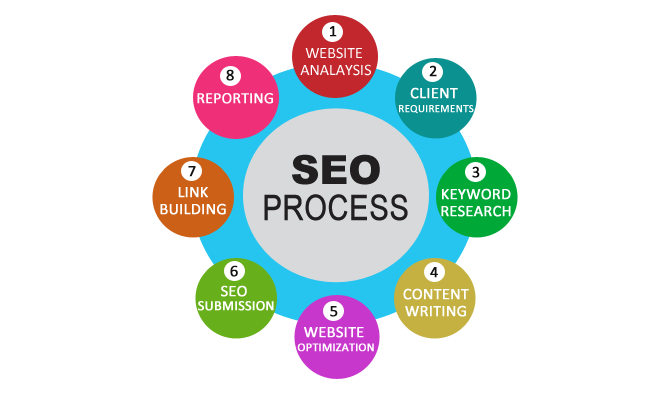When you want to find the best results on a search engine, all you have to do is start typing. Google, Yahoo and Bing will then return a list of websites that match your search query. The way that they do this is by analyzing the content of these websites and determining how relevant each page is for specific keywords or phrases.
One way that websites can improve their rankings is through optimizing their content by adding keywords and making sure it’s relevant to what people are looking for—after all, if no one uses your site as an authority source on any topic whatsoever, then why should they rank highly?
There are five main functions of SEO, including:
There are five main functions of SEO, including:
- Keyword research and placement
- Optimizing content
- Building links (backlinks) to your site and getting traffic from them
- Reputation management (RMM) – building your brand in the eyes of search engines so they can see that you’re a trusted source for potential customers or clients who want what you have to offer them (e-commerce sites do this especially well because they need repeat business) 5 measuring results
Keyword research and placement
The process of keyword research is an important part of SEO. Keyword research is the process of finding out which keywords are most relevant to your business, and then using those keywords as tags on your website or in your content so that people can find it more easily.
It’s also essential for any business looking to rank well in Google search results, but there are many tools out there that make this much easier than ever before:
- Google AdWords Keyword Planner – This tool allows you to see what potential searches might be coming up when someone searches for certain words or phrases related with the topic at hand (e.g., “sales”, “marketing”). You can use this information along with other sources such as SEMrush and Moz’s free report generator called Keyword Hangman (which provides estimates based on historical data).
Optimizing content
Optimizing content for search engines is the first step in optimizing your website. If you have content that isn’t optimized, then it won’t be able to be found by people who are searching for things like “how do I create a blog” or “what type of food is good for my cat”.
Optimizing content for humans is important because humans want to read things that are informative and engaging. They don’t want to read about what you did last weekend or how much money you made at work this week—they want answers!
Optimizing content for social media (Facebook, Twitter) can help increase traffic from these sources as well as increase brand awareness among potential customers who may not otherwise know about your business but would still be interested in what it has to offer them if only they knew about it first hand without having been told anything beforehand via other means such as word-of-mouth networks.”
Building links
Link building is the process of gaining links from other sites. These links are votes for your site and help it to rank higher on search engines. They also help you get more traffic, which means more conversions!
There are two types of link building:
- High-quality links – these are usually from sites that have had a history of providing good content and interaction with their users/customers (i.e., they’re high quality).
- Low-quality links – these can come from anywhere, but they often come from spammy websites or blogs with little value to offer in terms of content or interactivity.[1]
Reputation management
Reputation management is the process of improving your brand’s online reputation through various channels. It can be accomplished by using keywords, images, links and other signals to ensure that people who visit your site are positive about it. This ensures that you don’t end up with a bad reputation online and will lead to more customers in the future.
SEO works hand-in-hand with reputation management because when someone sees an ad for your company or service on Google or Bing search results, they’ll see how good you’ve been rated by others as well as what kind of reviews there are about them (if any). If enough people think highly of something then it’ll become more likely for them too!
In short: SEO helps build up trust between businesses/people while REP helps build confidence within those same businesses/people.”
Measuring results
Measuring results is an important part of the SEO process. You can use metrics to see if your site is performing well or not, and determine what needs to be improved. There are many different types of metrics that you can measure, but some are more important than others. For example, it’s unlikely that a metric like page views will tell you much about whether or not your content is valuable enough for users to want to return again and again (although this could still be worth measuring).
Metrics such as bounce rate may be better indicators of how well people are interacting with your site because they indicate how many people leave after visiting once and don’t come back; this means that whatever was posted doesn’t interest them enough for them want another look at it or read more about it later on down the line when there’s something else interesting going on within those pages/articles etc..
The main objective of search engine optimization is to ensure that a site is able to be properly indexed and ranked by the search engines.
Search engine optimization is the process of optimizing a website to get it ranked higher in search engines. SEO is a long-term strategy that’s used to make your website more visible and relevant to the users who find it through search engines. It involves analyzing keyword density, click-through rates (CTR), and other factors related to user behavior on the site; then finding ways to improve those metrics so that you can drive more traffic from search engines.
SEO isn’t just about keywords—it’s also about building links from high-value sites back into yours (like authority sites) or earning social signals through content marketing efforts like guest posting or promoting products on affiliate networks like Amazon Affiliate Program which gives them money when someone buys something after clicking one of their links within their content
Conclusion
The key takeaway here is that search engine optimization is an essential part of your digital marketing strategy. It can help you rank higher in search engines, which will lead to more traffic and leads. In addition to this, it also helps with keyword research and placement so that your website can be found by potential customers who are looking specifically for what you offer them. If you’re looking forward to getting more out of SEO as well as improving customer satisfaction rates then there’s no better time than now!








